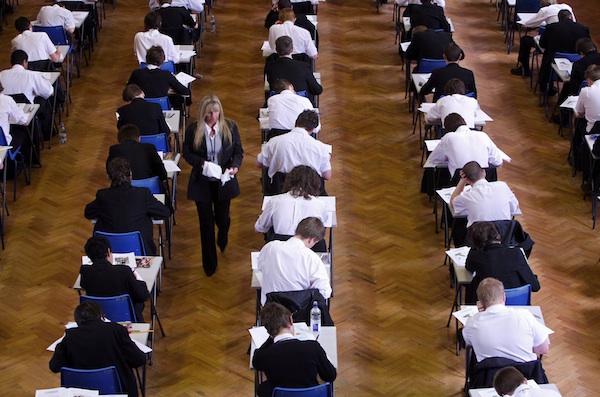The teaching unions have spent a lot of this week getting angry about one thing or another, but one of their number, the National Association of Head Teachers, did make a good point yesterday when reacting to Ofsted’s report on bright kids. Russell Hobby, general secretary of the National Association of Head Teachers – not the most aggressive of the unions – said:
‘However, the government’s league table culture deserves a measure of the blame for this situation. For too long, schools have been forced into the middle ground, to get students over thresholds at the expense of both the most and least able. Education has become a numbers game, at the expense of the ethos and breadth that underpin a truly great education.’
Hobby is right that teachers have been too narrowly focused on thresholds rather than full potential. It’s one of the reasons GCSEs needed reforming, as these graphs show. They are from the Ofqual report on last summer’s GCSE English marking row, and show how teachers focused all their energies on hurling pupils over that vital C grade boundary.
The graph below for the English Language GCSE offered by AQA, which has 62 per cent of the entry for English and English Language, shows that for controlled assessment work marked by the pupils’ teachers, there were large clusters of students gaining marks that pushed them comfortably into the grade boundaries for January 2012:

But the chart below is based on the actual boundaries for June and shows that many more students just missed the grades:

The graphs for AQA’s English qualification are even more striking. This is the graph for the January 2012 grade boundaries:

And this is the graph for the June grade boundaries, which again shows that many more students missed the grade C:

They show that while some unions like the NUT and NASUWT argue that reforming GCSEs will upset current students who will feel their grades have been devalued, the grades have already been devalued. Worse than that, the way schools are judged means children’s potential is being devalued as teachers can relax once they’ve pushed their pupils over that C grade finishing line.
The point is that it is unfair to continue with an exam that has not just been devalued, but that has failed to serve bright pupils who are capable of doing better. But as Will Heaven points out here, pushing up expectations in schools isn’t something the Education department can sit back and wait for: Ofsted yesterday called for specific action from ministers too.







Comments